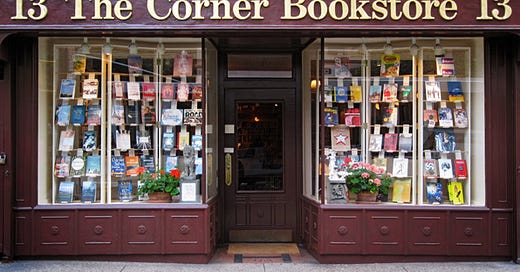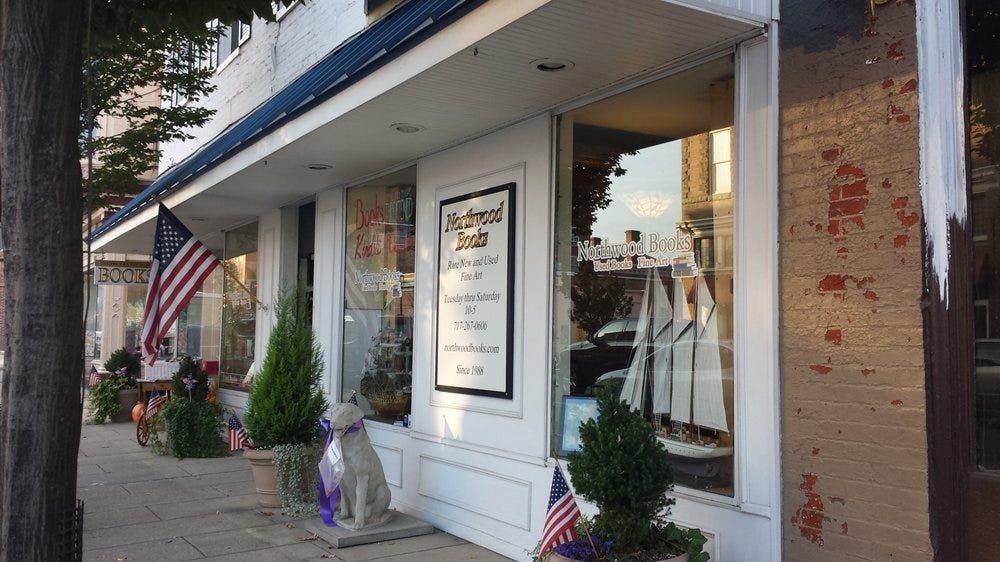Well, I won’t pretend that today is Wednesday, when I usually try to get newsletters out. A couple weeks’ worth of international flights got in the way of Wednesday, but the trip provided lots of thought regarding our topic. Not that I went places where there were lots of bookstores; on the contrary, it was the first time in a while that I’ve been to a series of countries without any.
Audre Lorde says that longform writing is a luxury--the time to sit down and write word after word, then edit, then re-edit, all that time represents security and prosperity. When you don’t have that economic or personal security, you probably won’t write a book.
Now, clearly I have time and surplus resources on my hands, both enough to write my own and read others’ writing. Doing so has made me used to this form of understanding. When I want to get to know a place, I find their bookstore and see what the community looks like (I also do lots of other things, I swear I’m fun to talk to, but for the purposes of this project let’s stick to bookstores).
Looking at bookstores this way, as distillations of a community, is an outgrowth of a class I took in college. Our title text was Benedict Anderson’s Imagined Communities, where he talks about the formation of nations and the development of nationalism. One of many components he discusses is a local language or dialect and the circulation of writing in that language. For him, recognizing that there are people outside your immediate circle of exposure who speak the same language as you is a crucial step in forming a broader collective identity. UNESCO uses books published per country per year as an indicator of standard of living, education, and a country’s self-awareness. I mention this not as a way of recognizing who is superior but what we lose when some nations lack more resources than others.
Nationalism now is something of a dirty word--I don’t remember the last time I used it in a complimentary way--but it is difficult to celebrate diverse communities unless those communities are nascent on their own. It’s hard to understand cultural context when all you do is have business meetings and stay in a hotel, as I did, and I felt the lack of the crutch I’m used to using.
Books can offer a window into an imagined community, the basic unit of a nation. Bookstores overall can collect what people think and say when they are free to celebrate their identity, at an individual, cultural, national, and collective level. Collections like that are a conversation, one that can be entered into just by reading a book.
My last stop on this trip was a much more luxurious place overall. I found a one-screen, nineteen-seat art house cinema, and of course, plenty of bookstores. The one I went to shared a building with its own independent press, dedicated to local and indigenous authors in the region. They had a usual crop of bestsellers and classics and bookstore-y knickknacks, but fully half of the store was dedicated to narratives from the places I’d been for the past few weeks. Novels, short stories, academic anthologies so full of nonsensical jargon that reading the back of the book felt like a personal attack. Histories, coffee table books, poetry, food literature, romances, murder mysteries, travel guides, and on and on.
It was a small bookstore, so small that half of it took thirty minutes to look over, even taking my time. But what a rich collection there was to offer in that small space. It was exactly what I had been missing over the past few weeks.
What do we lose when we don’t have bookstores? We lose access to books. What do we lose when we do not have books? Well, maybe nothing. I find it hard to say that reading is superior to every other form of learning. But I lose something. That alone is a reminder of why it is worth investing in others.
On that sober note, the bookstores I’m listing this week are two of the most pleasant places I have ever been. With the luxury of choice, some bookstores are niche, some are very pointed, and some are just a glorious cozy good time. These two are the latter.
Bookstores
The Corner Bookstore
I visited the Corner Bookstore just before Christmas, after a day wandering up Madison Avenue. It was the perfect evening to visit the place--cold enough outside that the warm interior was just as cozy as the lit bay windows promised…read more
Photo Credit: The Corner Bookstore
Northwood Books
Ami Plessinger owns Northwood Books, and her enthusiasm for it can be felt in every corner. Northwood occupies a surprising amount of space, with lots of nooks and crannies to explore…read more.






